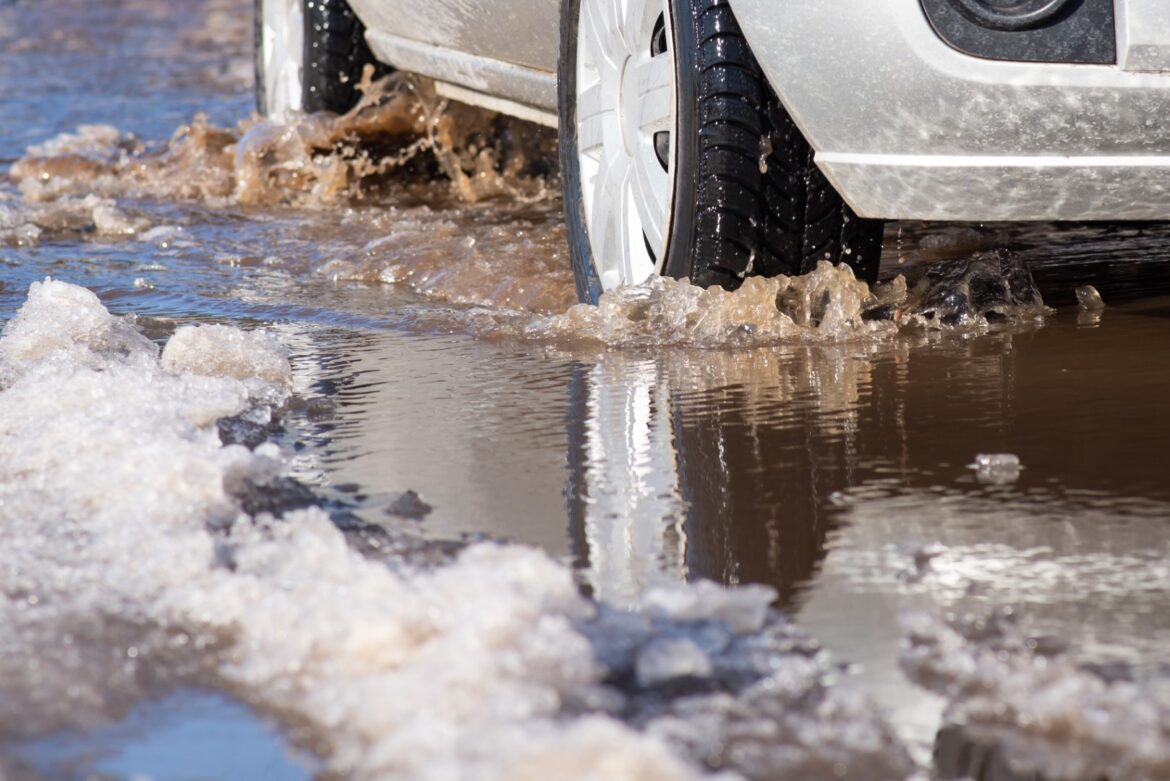Every year, potholes appear out of nowhere, making it difficult to avoid them. Changes in the weather are to blame for this phenomenon.
The varying temperatures in the spring and autumn cause road materials to shift, heave, and separate. This results in potholes of varying sizes, from tiny indentations to gaping canyons that can swallow vehicles. Even though steering around potholes is difficult, it is essential to the health of your vehicle and will help you avoid costly damage.

How Potholes Affect Your Car
1.Your tires – Tires are tough. After all, they put in a lot of effort because they are the car’s primary contact with the road. In any case, they’re not indestructible. When it comes to potholes, this is especially true. A number of tire issues, including blowouts and improper alignment, can result from hitting a pothole, making it unsafe to drive.
If you hit a pothole by accident, get out and check your tire. Be on the lookout for obvious warning signs like the tire losing air or appearing flat, as well as more subtle ones like bulges sticking out the side of the tire.
Potholes are hard on tires, but they can also hurt your wheels. Check the side of the wheel, right where the rim meets the tire, for bends, cracks, or dents as you examine your tire.
2.Suspension – The suspension in your car is designed to absorb impact and provide a smooth ride, but it can only handle so much. A number of suspension issues can arise as a result of the sudden nature of hitting a pothole, including: shock damage, broken ball joints, and misalignment. The majority of the time, your mechanic can correct the alignment, but if you don’t, you run the risk of having your car pull in one direction and uneven tire wear. Be on the lookout for strange noises, vibrations, and poor driving quality—all of which may indicate that your suspension requires repair.
3.Exhaust pipes – One of your car’s lowest-hanging parts is your exhaust pipes. As a result, potholes can easily hit them. Scraping or puncturing the pipes is one form of damage to the exhaust system. If there is a lot of noise and possibly power loss, you will know right away if the exhaust system is damaged. The exhaust system’s concerns should be addressed as soon as possible.
4.Undercarriage – A pothole is more likely to cause damage to a car that is smaller and lower to the ground. The siding and bumpers of smaller automobiles have a shorter reach and can suffer cosmetic damage when struck.
5.Your wheels – A pothole can leave rims with scratches, which nobody wants. However, in addition to causing a shabby appearance, potholes can also cause the wheel to move in a manner that is not intended for it. Cracks, chips, and bends may result from this. They will all make it difficult for them to roll smoothly, which is bad for your vehicle.
How to Avoid Potholes
Due to the speed with which potholes appear and the traffic in the area, sometimes it is impossible to avoid hitting one. By causing a collision with other vehicles on the road, rapid braking or swinging can cause even more damage.
If you have to drive over a pothole, you should slow down and keep your wheel straight. Make sure your mirrors are clean and carefully manoeuvre around any nearby traffic if there is none.
By ensuring that your tires are properly inflated, you can avoid having bent or flat wheels. The sticker in the driver’s door jamb or the owner’s manual of your vehicle should show you the correct inflation level. On the off chance that you notice any clear commotions, lopsided rolling, or a lump or scratch in your tires, get your vehicle reviewed right away.

